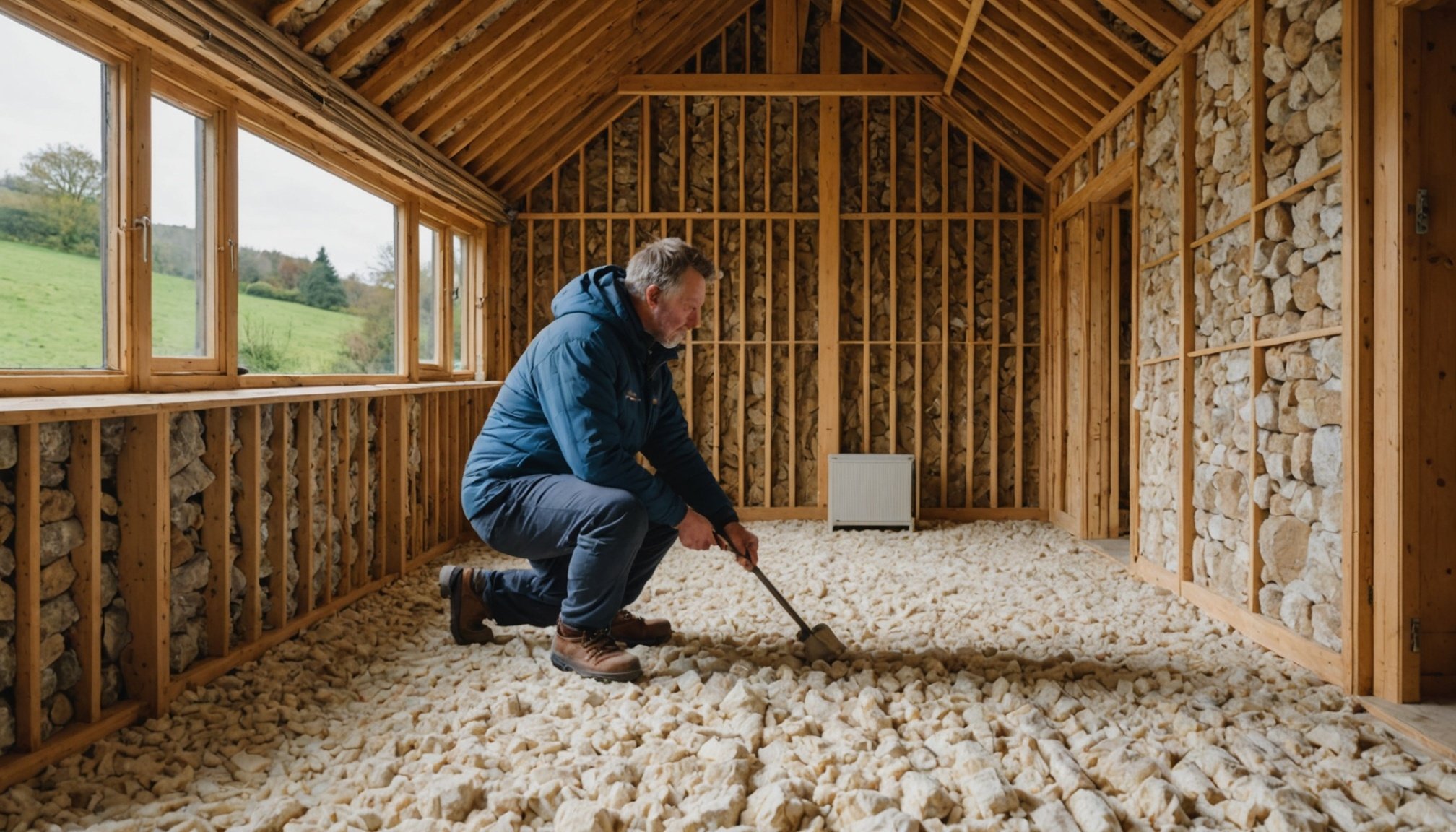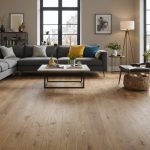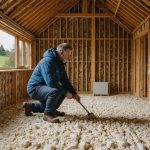Overview of Sustainable Insulation
Utilising sustainable insulation is crucial for both the environment and your home’s energy efficiency. At its core, sustainable insulation is designed with eco-friendly materials, such as recycled fibres or plant-based substances, aiming to minimise environmental impact while maximising energy conservation.
For the eco-conscious homeowner, sustainable insulation offers several benefits. It reduces energy consumption, leading to lower utility bills, and lessens the carbon footprint of a household. Additionally, sustainable insulation often improves indoor air quality by avoiding harmful chemicals commonly found in conventional insulation materials.
Have you seen this : Top Strategies to Tackle Condensation in Your Cornish Coastal Home
In Wales, sustainable construction is not only encouraged but often incentivised. The Welsh government has implemented regulations and incentives aimed at promoting eco-friendly building practices, including the use of sustainable insulation. These initiatives are part of a broader commitment to reducing greenhouse gas emissions and achieving a greener building sector. Homeowners and builders can benefit from grants or tax rebates for adopting sustainable construction methods.
Choosing eco-friendly materials aligns with an increasing global shift towards sustainability, ensuring that your home is not only energy-efficient but also in harmony with the environment. Embracing these options fosters a healthier living space while contributing positively to global ecological efforts.
Also to read : Top Toddler-Friendly Stair Gate Solutions for Two-Story Homes in Birmingham: Ensuring Safety and Peace of Mind
Top 5 Sustainable Insulation Options
Choosing the best sustainable insulation can make your home more energy-efficient while also supporting eco-friendly practices. Here’s an overview of some top eco-friendly insulation options.
Sheep’s Wool Insulation
Characteristics and thermal performance: Sheep’s wool insulation is highly effective due to its natural crimp, which traps air and aids in thermal regulation. This makes it ideal for maintaining consistent indoor temperatures.
Environmental impact and sourcing: Sourced from a renewable resource, sheep’s wool is biodegradable, supporting the environment in ways synthetic insulation can’t. Wales, with its abundant sheep farming, provides a local supply, minimising transportation emissions.
Cost analysis and local suppliers: While sheep’s wool can be pricier than other insulation types, its durability and performance justify the investment. Local suppliers offer competitive pricing, making it a viable option for many homeowners.
Hempcrete Insulation
Composition and insulation properties: Hempcrete, derived from hemp and lime, is lightweight and provides excellent thermal and acoustic insulation. It’s increasingly popular in sustainable building practices.
Benefits of using hemp in construction: Hemp grows quickly, needs little water, and depletes minimal soil nutrients, making it an excellent sustainable crop.
Availability and installation considerations: Though installation requires expertise, hempcrete’s accessibility is growing, with several suppliers offering comprehensive services.
Practical Considerations for Implementation
Implementing eco-friendly home renovation projects requires careful planning, especially when it comes to installing sustainable insulation. One of the primary factors to consider is your local climate. For instance, in regions with colder climates, selecting insulation with a higher R-value will help maintain warmth. On the other hand, areas with milder weather might benefit from materials that offer balance between insulation and ventilation.
For those in Wales, finding a contractor dedicated to sustainability can make a significant difference. It’s crucial to choose professionals experienced in insulation implementation who prioritise eco-friendly materials. When vetting contractors, inquire about their commitment to using recycled or natural materials and their familiarity with environmentally sustainable practices.
Financial incentives can make eco-friendly home renovation projects more affordable. UK homeowners, particularly in Wales, may benefit from government schemes aimed at promoting energy efficiency. There are grants and incentives available for projects like insulation implementation, which can offset initial costs. Exploring these options could substantially reduce your expenses.
When selecting insulation, consider recycled materials or natural fibres like wool or cellulose. These options not only comply with eco-friendly standards but also enhance your home’s energy efficiency. Taking these steps ensures a balance between sustainability, financial feasibility, and effective climate control.
Case Studies and Real-Life Applications
As eco-conscious renovations gain traction, Welsh home examples offer insightful perspectives into sustainable insulation case studies. Wales, known for its rich heritage and varying climates, provides an ideal backdrop to highlight practical applications and benefits of these eco-friendly solutions. One such example is a traditional stone cottage in Pembrokeshire. The homeowner opted for wool insulation, and their experience underscores the benefits of combining environmental friendliness with practicality and warmth.
Local Testimonials
Homeowners who’ve undertaken these renovations often cite not only a noticeable improvement in energy efficiency but also in comfort. Gareth, a resident in Anglesey, shares, “Switching to eco-friendly insulation brought my energy bills down, and the house feels snug in winter.” These personal testimonials illustrate the palpable advantages that sustainable solutions offer in everyday life.
Cost-Effectiveness & Energy Savings
In analysing the cost-effectiveness, many Welsh homes have reported significant savings on energy bills within just a few months post-installation, substantiating their choice as a sustainable investment. By reducing heat loss substantially, the added expense of eco-conscious materials is often offset by the resultant drop in heating needs. Whether you’re renovating a quaint cottage or a modern home, this proven efficiency means more homeowners are inclined towards eco-conscious renovations.











